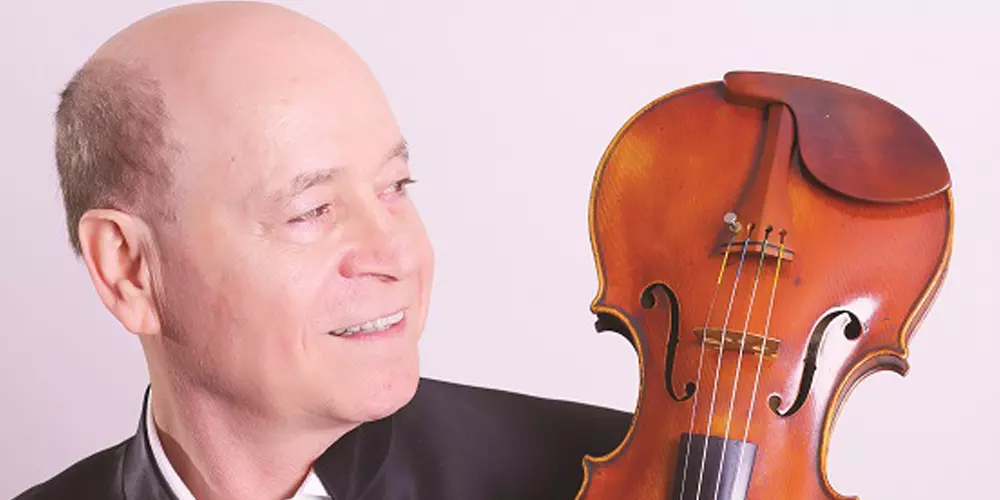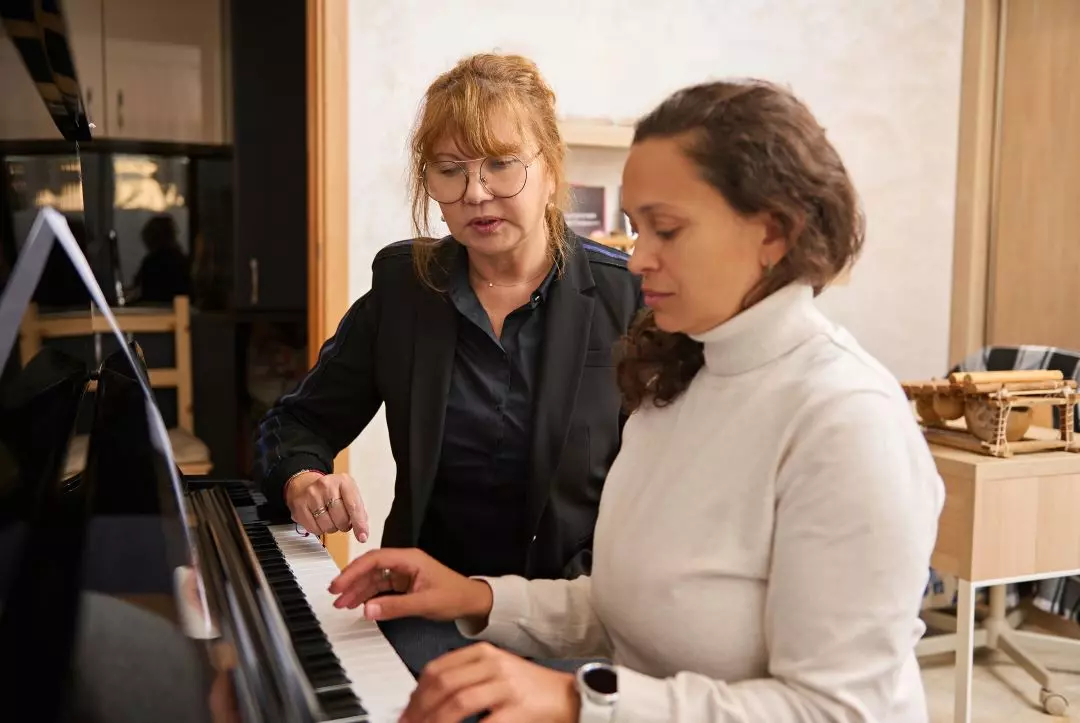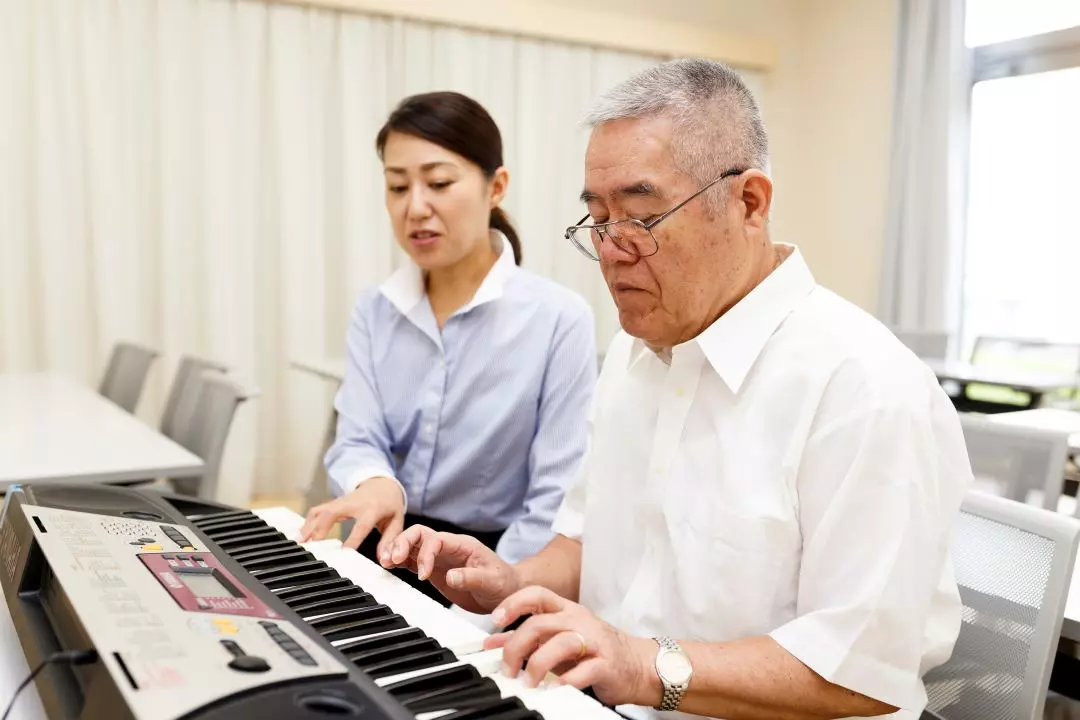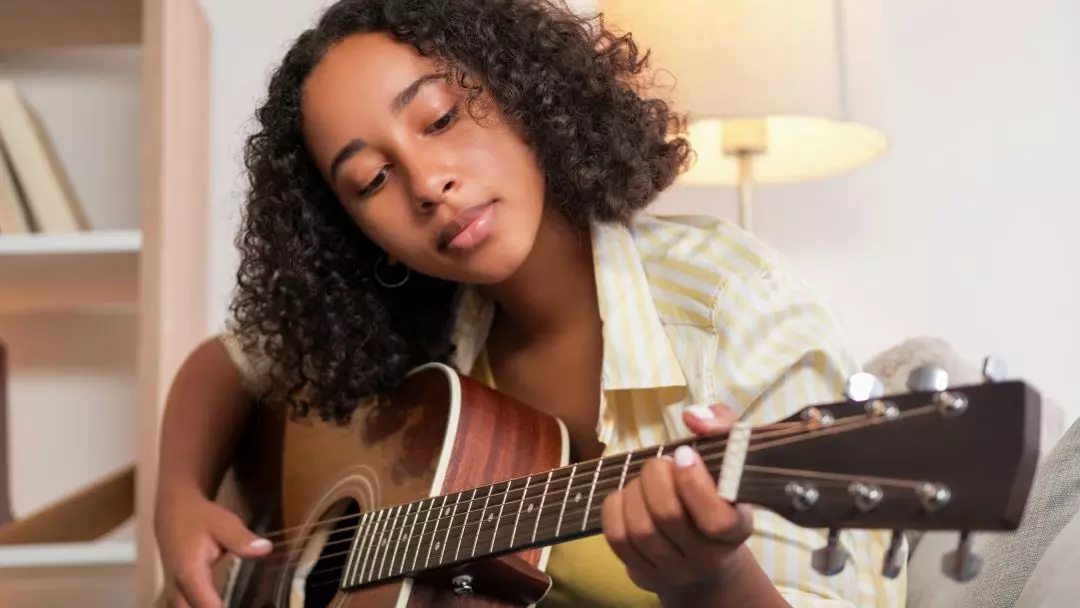The Benefits of Music Lessons Later in Life
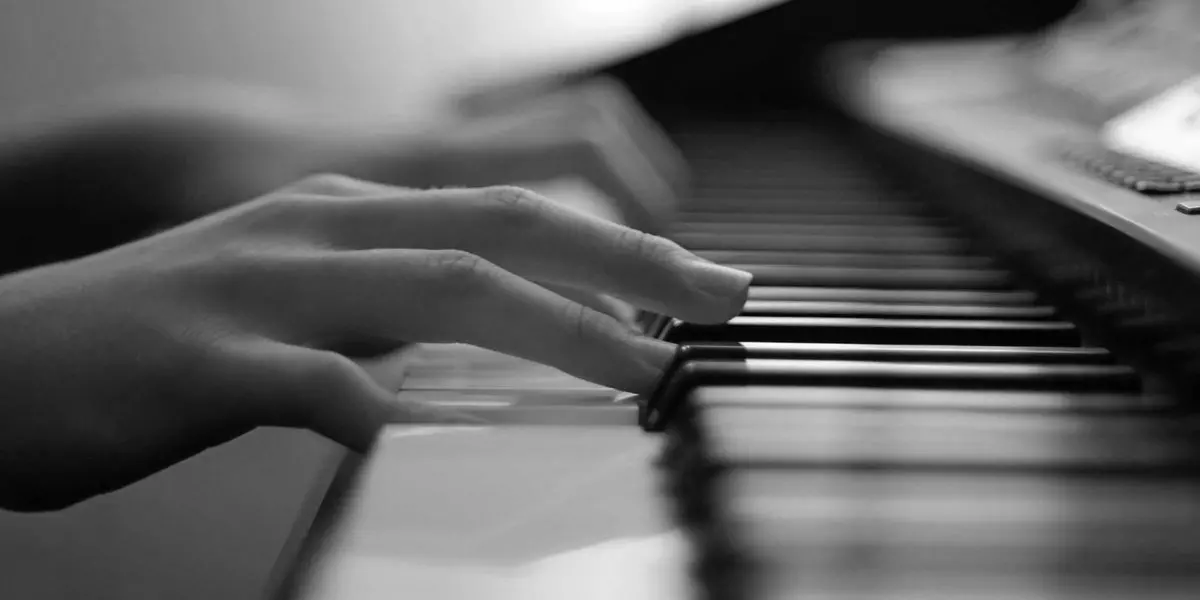
Updated: October 3, 2024
Many of us have fond memories of taking music lessons in our youth. Like many, I took music lessons in school playing the clarinet and singing in a school choir. I enjoyed both, but quickly realized that music wasn’t my career. As I entered university and adulthood, music became something I listened to on the radio or sang along to in the car.
But the desire to play an instrument, specifically the piano, always lingered in the back of my mind.
Years later, when my son started violin lessons, I decided it was finally time to fulfill that secret desire. I signed up for private lessons, and I’ve never looked back.
There are multiple benefits of music lessons for adults to share to help you reconsider picking up the habit of playing music or starting a new hobby entirely.
Why Music Lessons for Adults Are More Accessible Than Ever
One of the great things about taking music lessons as an adult is how accessible they’ve become. You don’t need a grand piano or expensive drum set to start. You also don't need to get an expensive education at a music school, unless you want to make music a career path.
You can rent instruments short term or choose a rent-to-own option, allowing you to try different choices before committing.
Upgrades or trade-ins on used musical instruments are easy to arrange as your skills progress day to day.
With the latest innovations like digital pianos and electronic drum kits, instruments are now compact and portable. Many even come with headphones, so you can practice quietly at home without disturbing others.
No Experience Required: Music Lessons for Beginners of All Ages
If you’re someone who didn’t take lessons as a child, don’t worry, you’re not alone. There’s no age limit or prerequisite to start taking music lessons. My neighbor began piano lessons in his sixties and is now working through advanced levels with the Royal Conservatory.
One of the great things about choosing to take music lessons later in life is that you research your teacher based on your learning style. With so many talented teachers, it's important to find a teacher that suits you and is willing to take on adult students and provide meaningful but challenging adult lessons.
As someone with a busy job and teenagers at home, I wanted a teacher who would encourage me to learn a new skill without adding pressure if I didn't get enough practice one day. If your first teacher isn’t the right fit, it’s easy to switch—just like finding the right pair of jeans, you’ll know when it’s a comfortable match.
The Health Benefits of Taking Music Lessons
Taking music lessons as an adult isn’t just about having fun. It also has surprising health benefits. Studies show that playing an instrument can lower blood pressure, reduce stress, and even boost your immune system.
A recent study conducted by Mental Health Research Canada indicated that over one-third of Canadians report work-related stress which can lead to burnout. So music can be a perfect outlet for relaxation and self-expression.
Learning to play music also gives your brain a workout. Research has shown that music lessons, even for as little as six months after age 60, can improve memory, information processing, and planning skills. This is one of the 10 reasons for learning to play a musical instrument.
A study published by the New England Journal of Medicine found that frequent musicians are less likely to develop dementia. So, if you’re thinking about healthy aging, music lessons could be a key factor in keeping your brain sharp.
In today’s world, brain health is a priority. Many of us used to do crossword puzzles or play board games to stay mentally sharp. Nowadays we have all the mini-games on our phones at our fingertips, playing the occasional word scrabble game when we have time to waste.
But music lessons offer a more interactive and enjoyable alternative. Not only do they challenge your mind, but they also provide a social element and a new hobby. There are Facebook groups and public-facing events where you can meet new people.
Learning music can also help preserve your hearing . A study from Northwestern University found that musical training can improve your ability to understand speech in noisy environments; which often becomes more difficult with age.
Personalize Your Learning Experience
One of the best aspects of taking music lessons as an adult is that you’re in control. No one is making you practice or dictating what instrument you should learn. Whether you’re interested in classical music or want to learn how to play your favorite pop songs, it’s entirely up to you.
With your music teacher's help, you can learn to read sheet music, learn the chords to your favourite song, play by ear, or follow a structured curriculum. The flexibility to create your schedule at your own pace is an excellent method to avoid burnout.
You're Never Too Late to Enjoy Music
Most importantly, music is fun. While I’m still not an accomplished pianist, I can play along with my singing or pick out a tune for my enjoyment. With more practice, I might feel ready to play with my much more musically talented husband who plays guitar.
If you’ve ever considered learning an instrument or returning to one, go for it! Now more than ever is the perfect time to start. The joy of listening to music and being able to recreate it on your own is a rewarding experience. Whether in your thirties, fifties or beyond, it’s never too late to take adult music lessons and embrace the joy of music.
Long & McQuade offers a talented pool of carefully selected teachers with previous experience in music education, and most importantly, play instruments as an adult! Search for teachers near you where you can view teacher's schedules and which instrument they teach.


